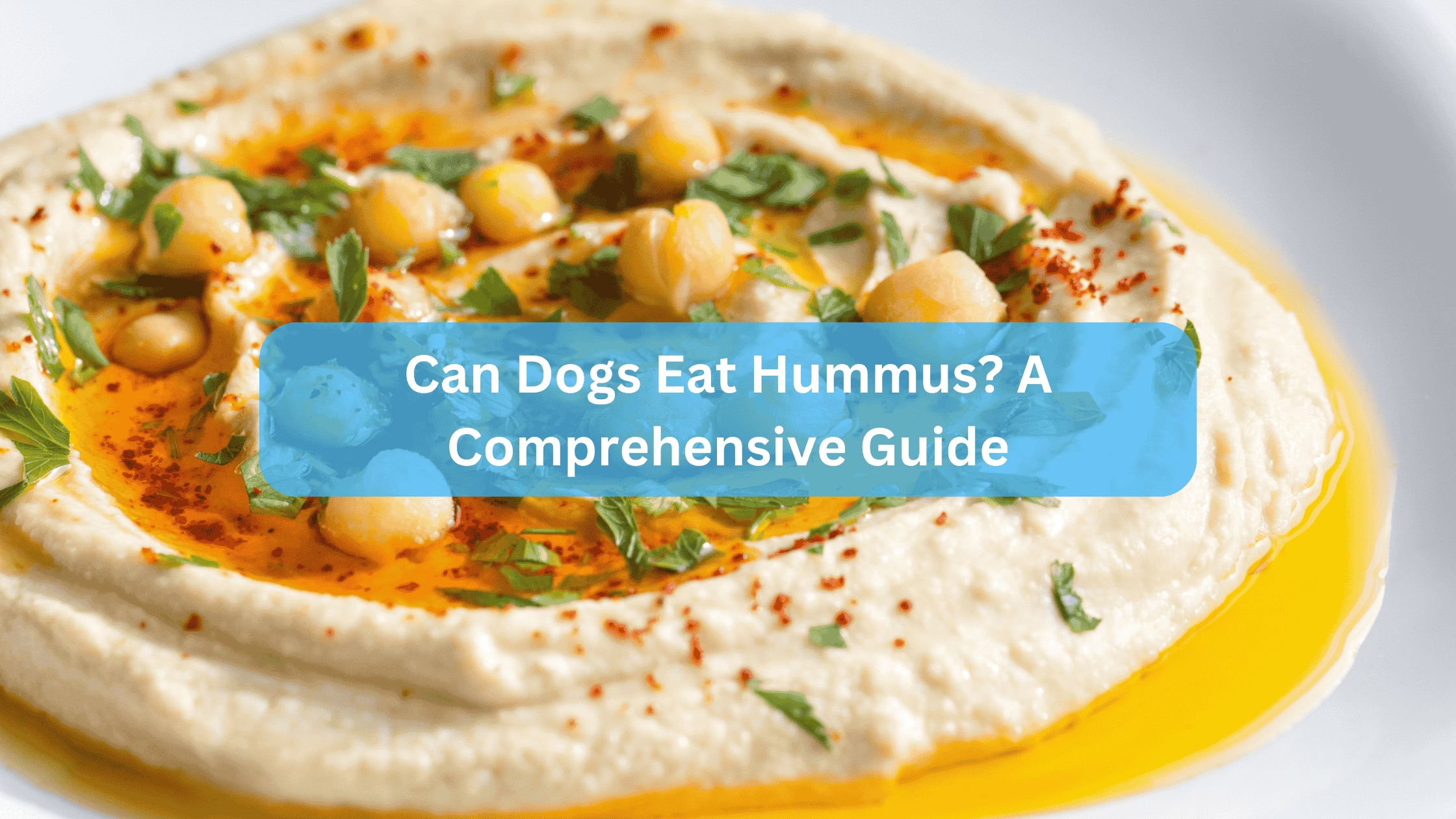Hummus is a popular Middle Eastern dip made primarily from chickpeas, tahini, olive oil, lemon juice, and garlic. While many humans enjoy this nutritious snack, dog owners often wonder: Can dogs eat hummus? This guide will delve into the implications of feeding hummus to dogs, the potential risks associated with its ingredients, and safe alternatives for your furry friend.
Understanding Hummus
Hummus is primarily made from:
- Chickpeas: A legume that can be safe for dogs in moderation.
- Tahini: Made from sesame seeds; while not toxic, it is high in fat.
- Olive Oil: Healthy in moderation but can contribute to weight gain if overconsumed.
- Garlic: Toxic to dogs; even small amounts can cause gastrointestinal upset and more severe health issues.
- Lemon Juice: Can cause stomach upset in some dogs.
- Spices: Many spices can be harmful or irritating to a dog’s digestive system.
Nutritional Benefits of Hummus for Humans
Hummus is rich in protein and fiber, making it a healthy snack option for humans. However, these benefits do not translate to canine consumption due to the presence of harmful ingredients.
Why Is Hummus Bad for Dogs?
The primary concern with feeding hummus to dogs lies in its ingredients. While chickpeas are generally safe in moderation, the other components can pose significant risks.
Toxic Ingredients
- Garlic and Onions: Both belong to the Allium family and can damage red blood cells in dogs, leading to anemia. Symptoms may include lethargy, weakness, vomiting, and diarrhea.
- High Fat Content: Ingredients like tahini and olive oil contribute to high fat content, which can lead to obesity and pancreatitis if consumed in excess.
Health Risks
Feeding your dog hummus can result in:
- Gastrointestinal Upset: Symptoms may include vomiting and diarrhea.
- Weight Gain: High-calorie content can contribute to obesity if fed regularly.
- Toxic Reactions: If a dog consumes a large amount of garlic or other harmful ingredients, it may require veterinary attention.
What Should You Do If Your Dog Eats Hummus?
If your dog accidentally consumes hummus, monitor their behavior closely. Most likely, they will experience mild gastrointestinal upset. However, if your dog shows signs of distress such as:
- Vomiting
- Diarrhea
- Lethargy
- Abdominal pain
You should contact your veterinarian immediately for guidance.
Safe Alternatives to Hummus for Dogs
While traditional hummus is not safe for dogs, there are several alternatives that you can offer without worry:
Plain Chickpeas
Cooked plain chickpeas (without added salt or spices) are a nutritious treat that provides protein and fiber.
Dog-Friendly Dips
Consider making homemade dips that are safe for dogs:
- Pumpkin Puree: Rich in fiber and vitamins.
- Peanut Butter: Ensure it’s free from xylitol (toxic to dogs) and use it in moderation.
Fresh Vegetables
Many vegetables are safe for dogs and can serve as excellent dipping options:
- Carrots
- Cucumbers
- Bell peppers
- Broccoli
These options not only provide nutrients but also keep your dog engaged during snack time.
Expert Opinions on Hummus for Dogs
Veterinarians generally agree that while some ingredients in hummus may not be harmful on their own (like chickpeas), the overall composition makes it unsuitable for canine consumption.
Dr. Jane McMillen emphasizes that “while chickpeas are not harmful to dogs, additional ingredients like garlic pose significant risks.” Similarly, Dr. Richard Rosenbaum warns against flavored varieties of hummus that may contain even more dangerous components like chocolate.
Common Questions About Dogs and Hummus
Can Dogs Eat Chickpeas?
Yes! Chickpeas are safe for dogs when cooked plain without any seasoning or additives. They provide protein and fiber but should be given in moderation.
What Other Foods Should Dogs Avoid?
Dogs should avoid foods such as:
1. Chocolate
2. Grapes and raisins
3. Onions and garlic
4. Avocado
5. Alcohol
Are There Any Benefits to Feeding Dogs Chickpeas?
Yes! Chickpeas can help with digestion due to their fiber content and provide protein which is essential for muscle health.
What Should I Do If My Dog Accidentally Eats Hummus?
If your dog ingests hummus, it’s crucial to contact your veterinarian immediately. It’s best to avoid inducing vomiting or administering any treatments without professional approval.
Also Read: Is Bird of Paradise Poisonous to Dogs?
Also Read: Can Dogs Eat Crab Apples? A Comprehensive Guide
Conclusion: Can Dogs Eat Hummus?
In conclusion, while hummus may be a delicious treat for humans, it poses several risks for our canine companions due to its harmful ingredients like garlic and high fat content.
Instead of sharing your hummus with your dog, consider offering plain chickpeas or fresh vegetables as healthier alternatives.
Always consult with your veterinarian before introducing new foods into your dog’s diet to ensure their safety and well-being.
By understanding the implications of feeding hummus to dogs and opting for safer alternatives, you can ensure that your furry friend remains healthy while still enjoying snack time with you.
Sources:
- https://dogtime.com/dog-health/dog-food-dog-nutrition/96453-can-dogs-eat-hummus-safe
- https://www.reddit.com/r/Greyhounds/comments/gy2nj9/is_anyone_elses_grey_obsessed_with_hummus_my/







